Early Montreal RnB, Soul and Funk
Montreal Sound Ark is shedding some light on one of the less celebrated yet incredibly rich heritage of the city’s early rhythm and blues, soul and funk music. While this weekly radio show regularly plays sets in this genre, particularly whenever Archive Montreal unearths new (old) finds or acquires collections or donations of this kind of material, we were due to make a proper selection of material for some truly special shows.
Canadian music historian and resident researcher at Archive Montreal, Alex Taylor, curated and provided much of the earliest material and contributed the accompanying biographical notes and information below.
The first show aired on March 11, 2016 on CKUT, 90.3 FM in Montreal and the second aired May 13, 2016. The shows were sequenced by main Montreal Sound Ark DJ Louis Rastelli (DJ LRX-80), and graphic material was digitized at Archive Montreal in February and March 2016.
Listen to R&B show by MTL Sound Ark on CKUT here!
Here are the tracklists (Artist – Album – Song Title), followed by notes on many of the artists and images of the records themselves.
First show:
Big John Little & the Hot Toddies, 45, Heart Beat
Avalons, 45, Heart’s Desire
Big John Little & the Hot Toddies, 45, Lookout
Big John Little & the Hot Toddies, 45, Mojo
Billy Martin Orchestra & Vocalists, Billy’s Dance Party, Mashed Potato Time
Billy Hope & the Bad Men, Le Popeye, Back Road
Billy Horne, The Voice of Billy Horne, Blues from the Housetop
Frank Motley & his Motley Crew, Swingin’ with, Hi Ho Silver
Frank Motley & his Motley Crew, 45, New Hound Dog
Ted Royal, 45, I really go for you
Jades, 45, Chicken Fried Rice
Frank Motley feat. Jackie Shane, Have you Ever Had The Blues
Fritz Pereira & The Dukes, 45, Don’t Blame Mr. Elvis
Miller Sisters, 45, Cooncha
Billy Martin and his Orchestra, Twist Twist Twist, Night Train Twist
Joe Boatner and His Ink Spots, 45, Would You Mind
Guy Shannon & the Brunettes, Shake It Up Baby, Straight from the Camp
Delta Rhythm Boys/ The Deep River Boys, Shadrack
Milt Sealy Trio, 45, Black Diamond
Guy Shannon & the Brunettes, 45, Baby You Got It
Joe Boatner and Ink Spots, 45, My Dream C’est Vous
Kenny Hamilton & Jesmonds, 45, My Baby Loves Me
Billy Horne, The Voice of Billy Horne, Route 66
Billy Martin Orchestra, Music With Soul, Walk On The Wild Side
Oscar Peterson, Soul Espanol, Soulville Samba
Trevor Payne, Discotheque Vol. 2, Mad Dreams
Hot Tamales, 45, You Are My Sunshine
Jeff Brown, 45, Ain’t That A Groove
Lee Roy Preston & the Inn Crowd, 45, Everyday I have to cry
Billy Martin Orchestra, 45, Nothing but a Heartache
Pierre Perpall, 45, Je ne Peut te Laisser Partir
Les Planettes, 45, Mon Ami Noir
Billy Martin, 45, The Strut
The Muzix, 45, Hope Keep A Comin
Trevor Payne, 45, Tu ne sais pas comme je sais
The Muzix, 45, The wanderers comin home
Billy Martin, 45, It’s Your Thing
Pierre Perpall, 45, Shotgun
Second show:
Nite Riders, 45. Lookin for my baby
Big John & Hot Toddies, Have a Lot of Twisting
Guy Shannon & the Brunettes, Shake It Up Baby, Watermelon Man
Blly Hope & his orchestra, Popeye, Shake It Up Baby
Jackie Shane, Live!, Hi Heel Sneakers
Jackie Shane, Live!, Knock On Wood
Jackie Shane, Live!, Money
Jackie Shane, Live!, Raindrops
Billy Horne, Voice of Billy Horne, Secret Love
Doc Starkes and the Nite Riders, 45, Apple Cider
Ruth Brown, 45, 5-10-15 Hours
Spider Sam (Brownie McGhee) with Van Piano Man Walls, 45, Tee Nah Nah
Big John & Hot Toddies, s-t, Let’s Twist It
Jackie Shane, Live!, Papa’s Got A Brand New Bag
Trevor Payne, 45, Fa fa fa (sad song)
Teddy Nash & the Scales, 45, Je Vais Frapper Sur Du Bois
Joe Sealy Trio, s-t, Ode to Billy Jo
Marius (Cultier), 45, Coco Boogaloo
Pierre Perpall, 45, Jambalaya
The Majestics, The Soul King Otis Redding: A Tribute, Respect
Billy Martin, Strawberry Soul, Phillie Dog
Billy Martin & the Soul Jets, I Turn You On, I Turn You On
Floyd Lawson and the Hearts of Stone, Coming Out, Rated X
Billy Martin & the Soul Jets, I Turn You On, One More Time
Afro-American performers have a long history of playing in Montreal, dating back to the late 1800s. Their numbers and frequency greatly increased at the end of WWII to include names such as The Mills Brothers, The Ink Spots, The Deep River Boys, The Delta Rhythm Boys, and many top names in jazz (thanks to Norman Granz’s Jazz at the Philharmonics, which featured St-Henri’s own jazz superstar Oscar Peterson). By the rock’n’roll era, acts like Frank Motley & his Motley Crew, The Avalons, Billy Martin & his Orchestra and Billy Horne were taking up extended residencies and even moving here for the city’s welcoming nature and more relaxed racial situation. These American musicians would add much to Montreal’s burgeoning jazz and R&B scene, which had been primarily comprised of locals of West Indian extraction and expats from Halifax.
By the 1960s, R&B or soul music had gained enough broad popularity among with young white audiences to give rapid rise to many local performers. In Montreal the Apollo, The Black Orchid, the Esquire Show bar, the Soul Heaven and the Uptown became the primary venues for such acts as Billy Martin & his Orchestra, Kenny Hamilton, Trevor Payne, the all-white group The Persuaders, the Senators (featuring Skipper Dean), the Soul Mates, Thomas Chapman (former guitarist in Billy Martin’s Orchestra), Pierre Perpall and Harrison Tabb.
Fritz Pereira was born in Port-au-Prince, Haiti and came to Montreal to study at the University of Laval. He would perform on weekends, making quite a name for himself around the eastern Townships. In early 1957 he cut his first single: Don’t Blame Mr. Elvis. It was recorded live for an obscure independent label from St-Henri-de-Levis (located just south of Quebec City). Pereira went on to make several more records, including two LPs for the Meteor record label.
The Avalons from Newport News, VA featured three tenors: James Dozier, George Cox, Rafael Ingram, tenor-baritone Bobby Crawley and bass Bernard Purdie. They rolled into Montreal as part of the Hortence Allen Dance Troupe in 1956. Known up and down the Eastern Seaboard, they had a half-dozen American singles and were already signed to RCA Victor by the time they arrived in Montreal. RCA immediately had them back up Quebec performers such as Carmen Deziel, Paolo Noel, Michel Sandry and Les Jerolas. Heart’s Desire was their masterpiece — an extremely rare version of the single was issued only here on the Montreal-based Sandryon label. The details of their career were documented by American doo-wop expert Marv Goldberg, and you may have also caught them a few years back on PBS 2007 doo-wop special from Elizabethtown NJ were they sang Heart’s Desire. The Avalons faded away in the early 60s along with that entire vocal style, but a new formation headed by Jackie Richardson & Skipper Dean were back at it in 1968, releasing a single on RCA produced by Andre Perry.
Big John Little & The Rockers were based in the Niagara Falls, ON area. By March, 1959 they became The Hot Toddies who immortalized the classic hit single: “Rockin’ Crickets” (which climbed to #57 on the Billboard charts and apparently was one of Jimi Hendrix’s favourite records!). The racially integrated line-up consisted of: Big John Little on vocals & guitar, Bill Parnell, Dennis Lynne on drums, Billy Cardner on bass and Pierre Lévesque from Sherbrooke, QC on organ. As The Hot Toddies, they cut several singles released on both sides of the Canada-US border, with the band touring from Cleveland, OH to the Atlantic coast. They criss-crossed Ontario and Quebec, playing from Val D’Or to Gaspe, during which time that Big John even taught himself to speak French. By early 1962, they were back in Montreal, hanging out and playing at The Esquire Show Bar & Rockhead’s Paradise while recording their sole LP. Released in March 1962 at the height of the twist boom on the budget Montreal label Metro (a subsidiary of Trans Canada Records), the album would also see a second repackaging in 1964 on Rusticana as Big John & The Beetlers at the outbreak of Beatlemania. The LP cover shows a picture of Big John Little laying down with Denny Fox at far left, and left to right: Richard Jordan, Billy Cardner and Pierre Lévesque.
Billy Martin & Orchestra
Martin was born and raised in Harlem, NY and came up to Montreal in 1960 to begin his professional career. The trumpeter was the leader of one of the hottest black bands in the city throughout the 60s, who made over a dozen records for London Records, in addition to several more for Trans-World and Onion Records (in the USA). Like most R&B acts, they would tour up and down the Eastern Seaboard. They often performed as a quintet, sometimes with backing female vocalists and musicians that included: Thomas Chapman (guitar), John Scott (sax), Rickey Day (vocals – previously of The Drifters), Joe Johnson (Hammond), and Quebec-born white drummer Gilles Béland. By the end of the 1960s, their sound, like that of many other long-running RnB groups, evolved towards a harder funk style. This was evident on their late 1960s albums Strawberry Soul and Doin’ Their Thing, and in particular, I Turn You On, released only in 1974 although perhaps recorded earlier than that. It’s unclear when Billy Martin’s music career ended.
Joe Boatner’s Ink Spots were the final legitimate version of the vocal group first set up by Bill Kenney who briefly sang in this incarnation after permanently moving to Canada. Under Joe Boatner as bandleader, the act played many shows in Montreal and toured Quebec with Roger Miron’s act, even cutting a few super-rare singles for Miron’s Rusticana label exclusive to the Quebec market. (These are also noteworthy for lyrics which use up every last word of their rather limited French vocabulary). The Ink Spots were also joined by Ted Royal, whose American band helped round-out their live sound. This professional relationship also provided Ted with the opportunity to record his own exclusive single on Rusticana. The Ink Spots would continue touring in Canada and up and down the Eastern Seaboard well into the 1970s.
Billy Hope was the drummer and bandleader of the Bad Men, which also included Franky Brunson (organ), Khalid Ali (bs), Khalil Malik (trumpet), Sonny Brockton (guitar, formerly of The Angels) and Billy’s older brother, Lynn Hope (sax). The Bad Men had released a few singles on Savoy in the US before arriving in Montreal. Lynn, who played sax in a honking style similar to Big Jay McNeely, had played in the King Kolax Band during WWII and then again in Chicago in 1950. The Hope family, including all their brothers & sisters, were part of the pre-Louis Farrakhan Afro-American movement that converted to Islam, as were other members of the Bad Men. While little is know about Billy Hope, we do know that Lynn (taking the name Abdullah Al Hajji Ahmed Rasheed) lived in Egypt and toured the Middle East for two years during the 1950s. By 1962-63, Billy Hope and his band were regulars at The Esquire Show Bar on Stanley Street and recorded their sole LP, for the Montreal-based Metro label. While the album was popular locally, Billy Hope & The Bad Men mysteriously disappeared from the scene shortly thereafter, never to be heard from again.
- The Deep River Boys, LP
- Milt Sealy Trio, Tribute to Dorothy, LP
- Billy Horne & his Twisiting Combo, Twist All Night Long LP
- Big John Little & The Hot Toddies, Twist LP
- Billy Horne, The Voice of Billy Horne LP
- Guy Shannon & The Brunettes, Shake It Up Baby LP
- Various – Discotheque Vol. 2 LP
- Jackie Shane, Live LP
- Billy Martin & The Soul Jets, Strawberry Soul LP
The Miller Sisters (Long Island, NY) were the five daughters of Long Island A&R man, songwriter, arranger and music publisher, William Henry “Pops Milller”. The Sisters made nearly two dozen singles from 1955-1965 for such labels as Hull, Onyx, Acme, Miller High-Fi, Concha, Ember, etc. Their first known Montreal concerts were in May of 1962 with Billy Martin & his Orchestra at the Esquire Show Bar. The sisters were backed up by the Big Joe Burrell Trio, who also play on a few singles from this period, including the explosive “Cooncha“, a wild recording from Zirkon Studios in Montreal – located in the H-Bro building at the corner of St-Laurent blvd & Pine Avenue, in the back of Ben Halickman’s fabric shop/recording studio. Big Joe Burrell (who was B.B. King’s sax man for ten years) led his own sax-organ-drum trio that provided the musical backdrop for The Miller Sisters. Big Joe eventually met Big John Little at the Oyster Parlour in Montreal and got involved with his band The Hot-Toddies as well.
Billy Horne
William Horne was born on October 24 1928 in West Palm Beach, Florida. He was the last son of an African-American family of eleven children, whose mother was a very religious person in the Baptist church. Billy Horne once recounted in an interview: “Being born in the South, I got so tired of the suppression that’s been done to the black people, the humiliation that was put upon you as a young man and as a child that frustrated me… I thought… there must be a better place than this!” He was playing in a club in Miami Beach called Bucky’s Place. There was a band called T.N.T Tribble & the Five Sticks of Dynamite (whom Frank Motley had made his first records with on RCA Victor many years earlier), playing alternating sets with his trio. After the gig, Tribble asked: “What are you gonna do when you finish here? And do you wanna go to Canada with me?” Billy answered “Where is that?” (laughing)
He arrived in November 1957 playing piano with TNT Tribble & the Five Sticks of Dynamite. The band was booked for a four-week engagement at the Esquire Show Bar, but was so popular that they were held-over for a total of six! Billy became a landed immigrant in 1959 and recalls: “I came over and I was so impressed with the friendliness, and for me this was it! People was friendly, the different culture, I was fascinated by that!” He was a contemporary of Oliver Jones, and like him, was also a pupil of Daisy Sweeney-Peterson, Oscar’s much-loved sister. Billy’s debut recording — a great jump-blues single called “Blues from the Housetop” recorded with B.T. Lundy (tenor sax), Buddy Johnson (trumpet), Charlie Biddle (bass) & Clyde Duncan (drums) was released in 1961. “Route 66“, which was released two years later on his second LP, The Voice of Billy Horne with his new combo consisting of: Charlie Biddle (bass), Nelson Symonds (gtr) & Charlie Duncan (drums). In 1974, he briefly appeared in the movie The Apprenticeship of Duddy Kravitz (based on a novel by Montreal’s own Mordecai Richler). From 1975-78 Billy ‘Scorpio’ Horne played piano in the ground-floor lounge at Rockhead’s Paradise. By the 1980s he was working with jazz drummers Normand Villeneuve & Charlie Duncan.
Frank Motley & His Motley Crew
Frank Motley was a Washington DC native and rock’n’roll pioneer who was an important figure that helped promulgate the genre in Canada. Known for being a dual trumpets and band leader, he began making records in 1951 and already had dozens of releases to his credit (including his “New Hound Dog“ in 1954 which was issued years before Elvis started shaking his pelvis!) The band was constantly touring the Washington-Toronto-Montreal-Boston loop, in addition to several USA tours playing of American troops in Germany, the South Pacific & Middle-East. In 1956-57 they would take up a 6-month residency in Montreal playing at the Esquire Show Bar. It was during this time that they first met featured singer Jackie Shane, who was playing in the city’s East end. The Nashville-born and openly gay singer would often appear in make-up, earrings (and by the mid-60s in female apparel donning a blond wig).
Motley’s band and Shane performed together throughout the decade and cut recordings on both sides of the border for Montreal-based ABC and American labels such as Cookin’ and Sue Records. The first Motley LP, which was recorded in Montreal — and exclusively released in Canada in 1963, featuring vocals by Jackie Shane, Curly Bridges, Larry Ellis and Frank Motley himself – was a popular release that proved to be a very influential must-have platter for many budding Montreal musicians at the time. The band eventually settled in Toronto. Shane went out to California where he cut one single for Modern Records before rejoining Motley and his new band — The Hitch-Hikers — in Toronto in 1967. That was the same year they would record a live LP together (Jackie Shane, Live! for the Toronto-based Caravan Records), by which time Jackie was often performing in full female mode, not just hair and make-up, but in pantsuits and even dresses.
Milt Sealy Trio
Milt was born in Montreal on June 2nd 1929 and took up playing piano at the age of 9, joining his brothers George and Hugh, who played alto and tenor sax respectively. Milt would later study music at the McGill Conservatory while also working most nights in Hugh’s band at Rockhead’s Paradise. Milt spent much of the early 1950s playing at Cafe St-Michel, and in NYC at Minton’s and Birdland. By 1953 he’d found his way to Paris with hipster Mezz Mezzrow, where he performed and recorded while continuing his studies at the Paris Conservatory. He travelled across Europe and North Africa and by 1956 was making a name for himself in London where he dazzled British audiences with his technical virtuosity. Upon his return to Montreal in 1957, he would form a new band with Charlie Biddle on bass & Charles Duncan on drums, with whom he would launch his recording career.
Kenny Hamilton
Kenny Hamilton was born in Jamaica and moved to Vancouver where he studied at UBC. He had already begun performing there but it was only after graduating that he relocated to Montreal and really kicked his performance career into high gear with residencies at both the Edgewater Hotel & the Maples Inn in the West-Island. He recorded his first single “My Baby Loves Me” with the Jesmonds for the Toronto-based Barrel label in the early 60s, but worked throughout the 60s with the backing of the Oliver Jones Quartet and female singer Terry Malone. Collectively, these three acts performed as The Ken Hamilton Show , not only in Montreal, but in Vermont and all across the Maritimes & Newfoundland. For much of the decade, they worked a circuit of hotels from Montreal to Miami & Puerto Rico, in addition to shows in Detroit, New York, Las Vegas, Reno, as well as in Hawaii & the Caribbean. Kenny cut records for the Apex and RCA Victor labels in the mid 1960s before touring with the USO through the end of that decade.
Trevor Payne, who grew up with a musical background, began singing in a high school vocal group in the late 50s, The 4 Pals. By 1960, he was leading The Hounds (whose only single, the obscure “I’m Coming Home“ on Lark Records was one of the first records issued by future Quebec record mogul Denis Pantis). He would spend the next few years performing with major US acts while building his own reputation as a rising R&B star. By 1963, backed by The Capers, Trevor would record the excessively cool “Mad Dreams“ and by this point was often compared to both a young Ray Charles and a seeing Stevie Wonder. From then on, he then began performing with his own band the Soul Brothers, who later became Triangle (before going off on their own as Mashmakhan in 1969). It was with that group (comprised of Rayburn Blake, Pierre Senécal and future April Wine drummer Jerry Mercer) that he would record several French soul singles, including: Tout Ca Pour Ma Cherie and Tu Ne Sais Pas Come Je Sais for Denis Pantis’ Téledisc and R&B labels in 1966 & 1967. Payne was also a style icon, and in 1966 was one of the first designers for the fledgling Le Chateau chain. (He later formed the Montreal Jubilation Gospel Choir, and as its director performed for the likes of Pierre Elliot Trudeau, Nelson Mandela Queen Elizabeth II.)
- The Royal Ink Spots, Impossible
- Ted Royal, I Really Go For You
- Kenny Hamilton & The Jesmonds, My Baby Loves Me
- Billy Martin & his Orchestra, Oh Stop
- The Hot Toddies, Mojo
- The Jades, Chicken Fried Rice
- Lee Roy Preston & the Inn-Crowd, Every Day I Have to Cry
- The Muzix featuring Michael, The Wanderer`s Goin`Home
- Pierre Perpall & Eddy et Les Prophets, Je Ne Peux Te Laisser Partir
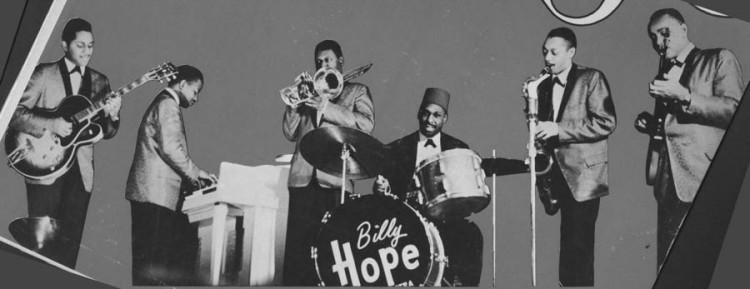
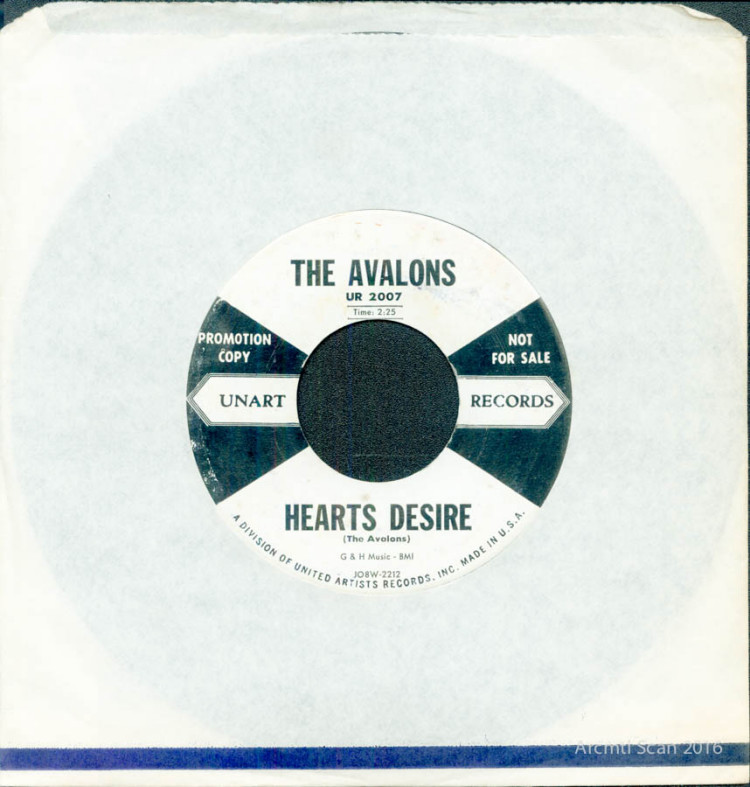
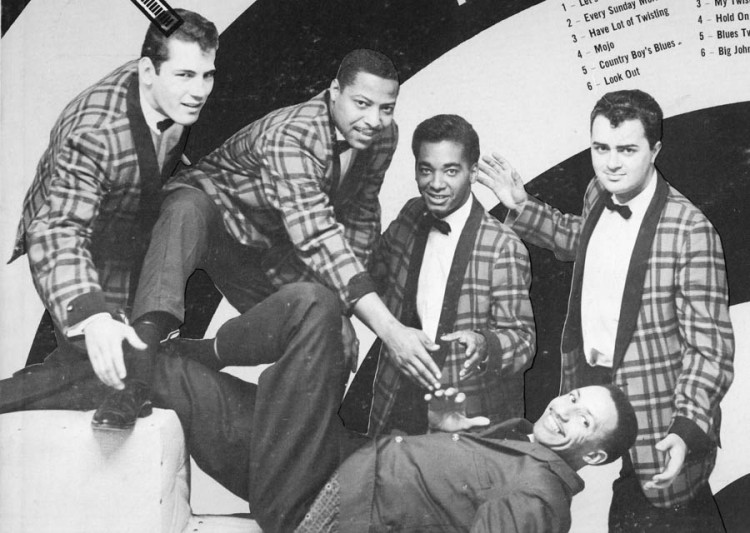
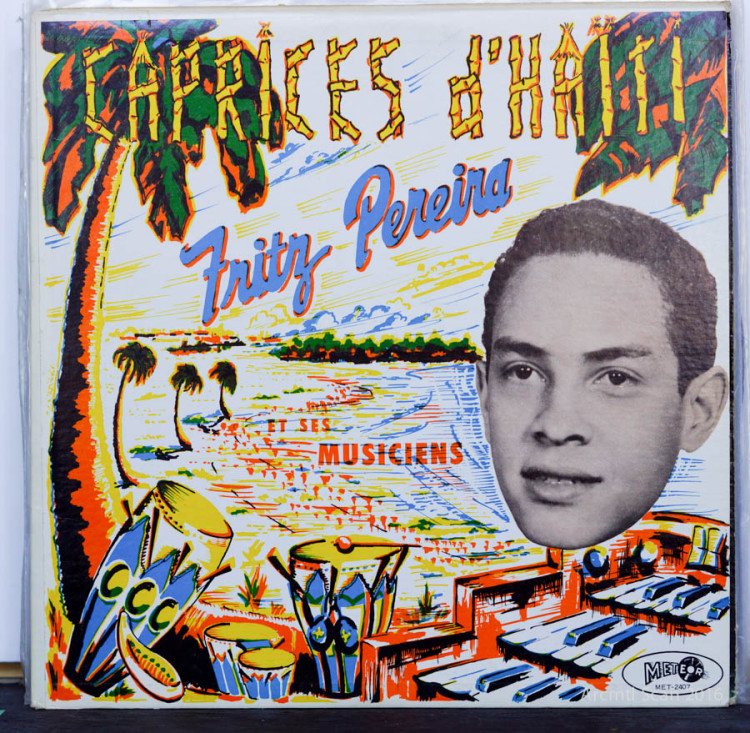
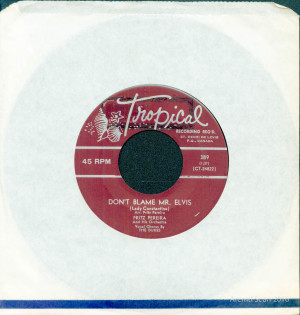
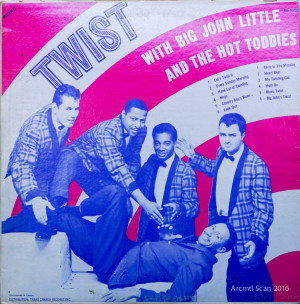
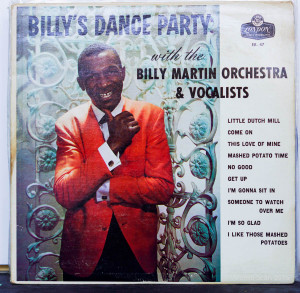
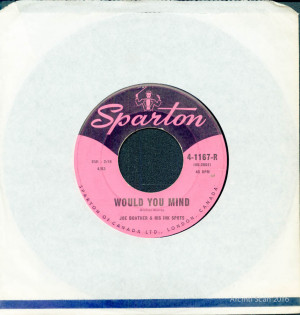
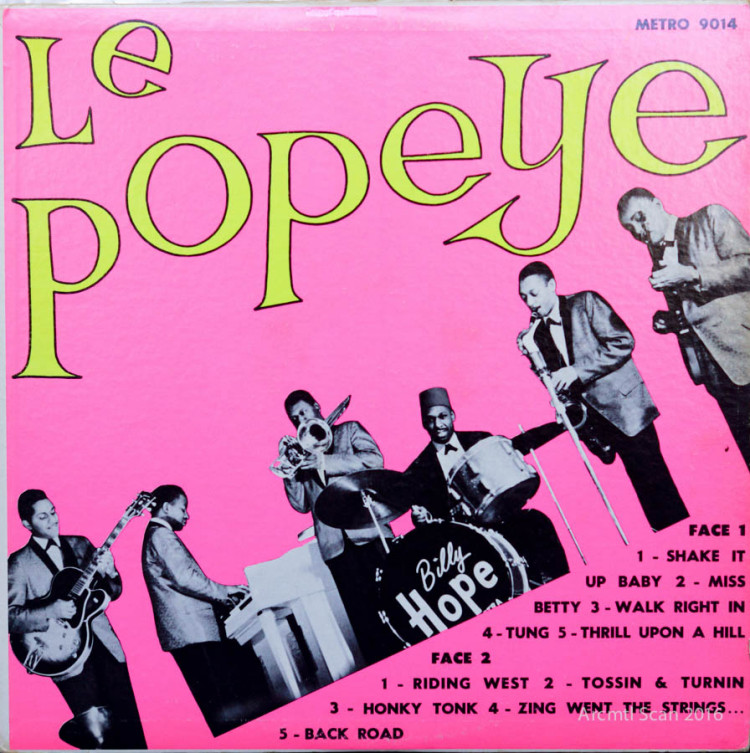
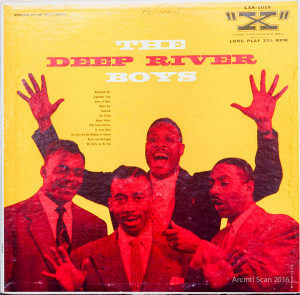
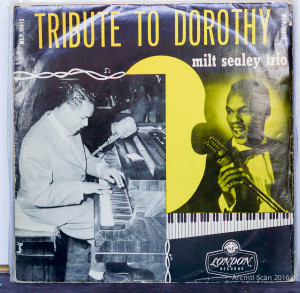
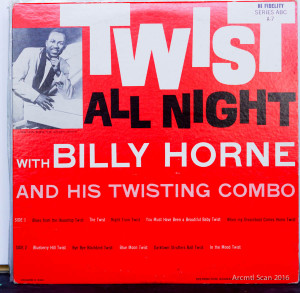

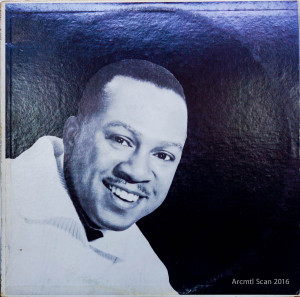
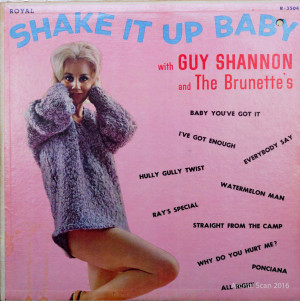
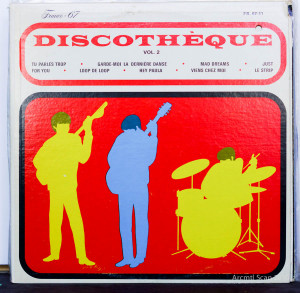
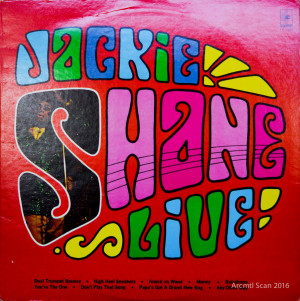
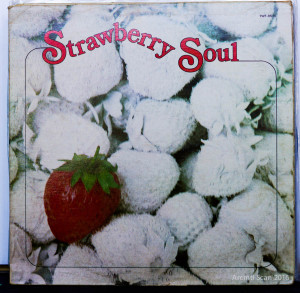
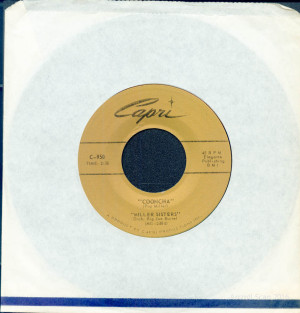
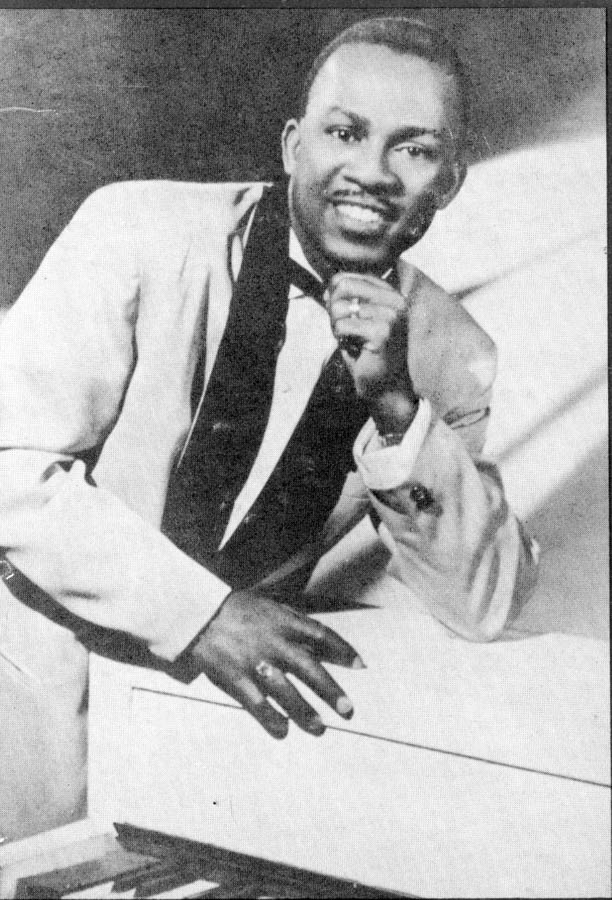
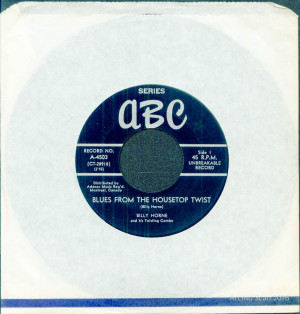
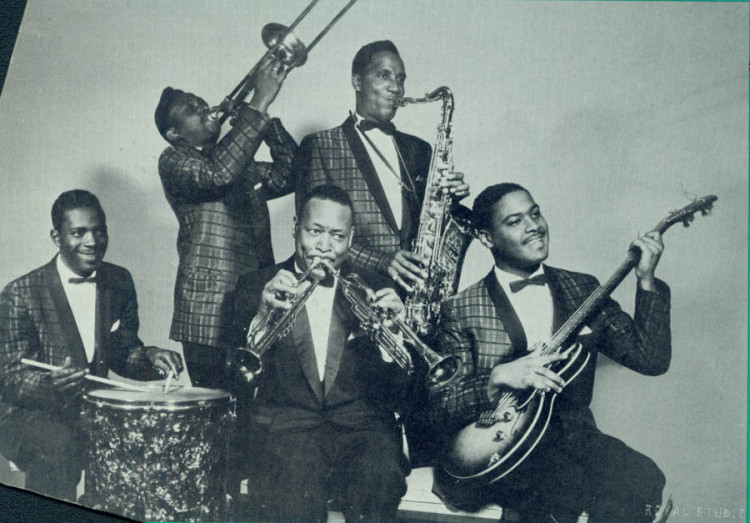
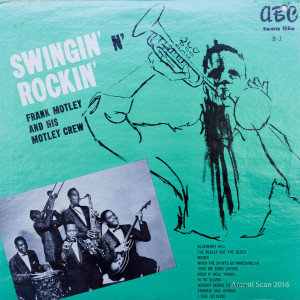
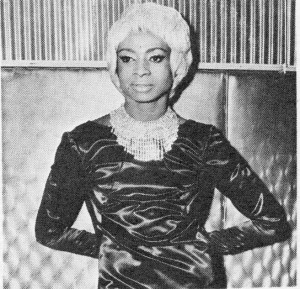
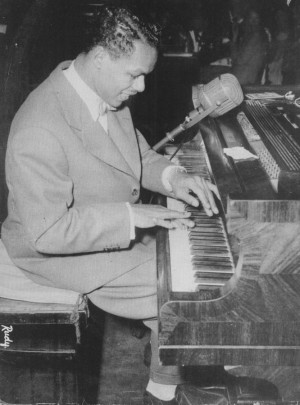
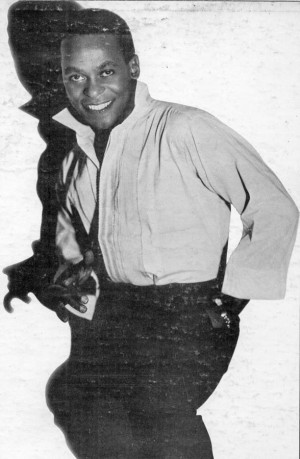
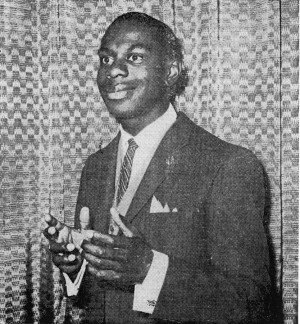
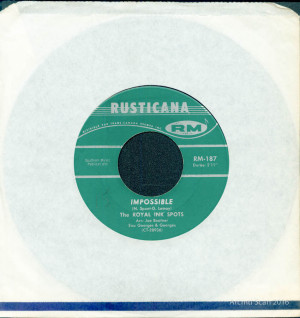
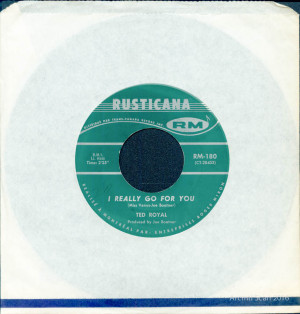
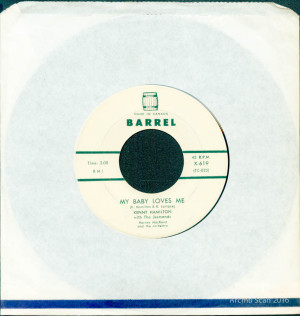
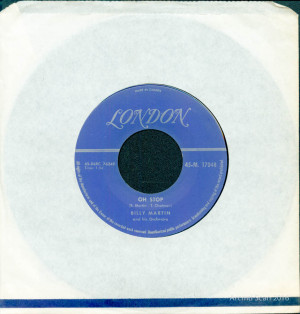
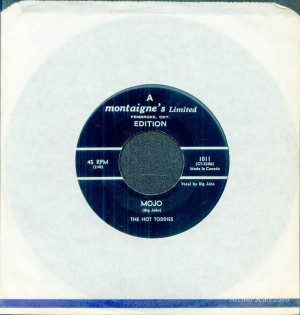
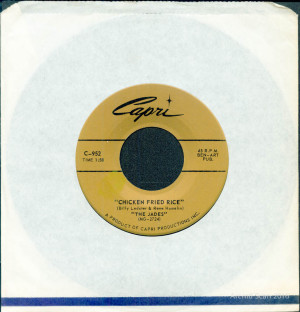
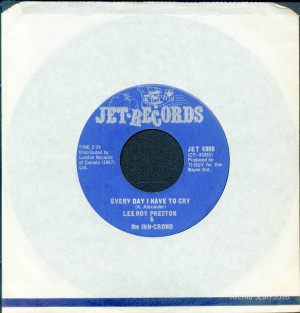
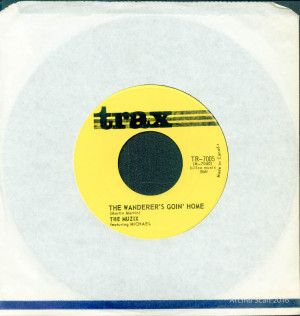
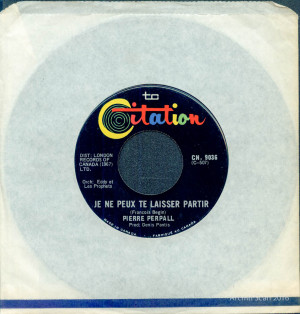




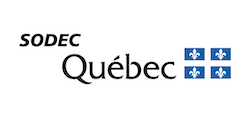
I'm looking for information,images,articles about Milt Sealey's years in NYC .Especially his gig at the top of the World Trade Center,in the revolving restaurant.I'm recording one of his songs soon to be realeased and I'd like to know more about him.He gave me sheet music of a couple of his songsHe was a great writer.
The song you're referring to is "Rock And Roll 'Gotta Beat" (Motley and his Crew's version of Bobby Mitchell's "Try Rock And Roll") issued on Quality K1602.
Motley's version was covered by The Beau-Marks on their second LP, In Person! Recorded On Location At The Le Coq D'or.
It may be the song referred to as "Try Rock And Roll" in the comments on this blog post https://fromthevaults-boppinbob.blogspot.com/2018/12/frank-motley-born-30-december-1923.html (look for the link...)
If not, you can find the record fairly inexpensively on discogs or alternatively, I have the record waxhound at hotmail dot com
Cheers,
Marc